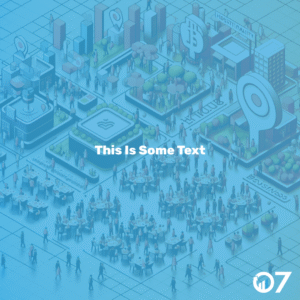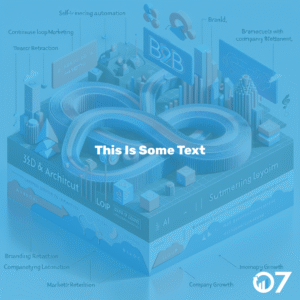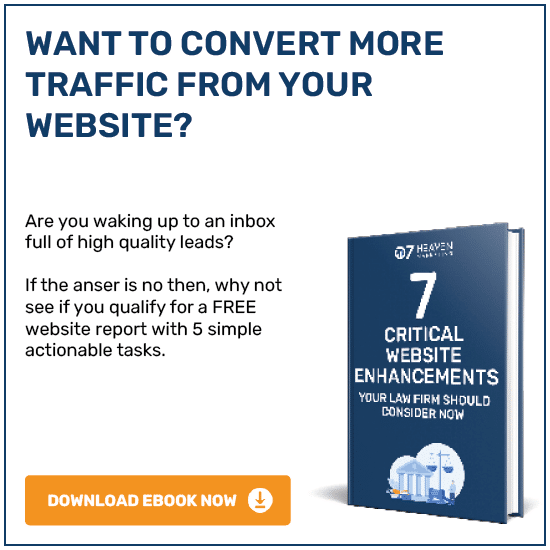No one would set out on a long road trip without a sense of the destination they were headed towards, when creating content it is no different. Creating a digital content strategy helps keep you on track.
A content plan serves as a roadmap, guiding you through every step of your content creation journey. Ensuring you are staying organised and reactive to audience needs whilst ensuring you are working towards your long-term business goals.
This combination gives the best chance of achieving a return on your investment.
The importance of creating relevant content is not isolated to the marketing department, content is important to all stages of the buyer’s journey from awareness through to ultimate purchase, therefore, having a content strategy is truly a business-wide issue.
So how do you build a digital content strategy?
Your long-term content strategy will centre around creating effective content for your buyer personas at each and every stage of their buyer’s journey, turning them into a satisfied and loyal customer.
There are three steps you can follow to create a productive long-term content plan:
1. Set SMART marketing goals
Setting goals helps to cement long-term vision and improve structure and vision, having clear targets in mind makes it easier to organise the time and resources that are needed to produce the right results.
All goals that you set should be SMART in nature (Specific, Measurable, Achievable, Relevant, and Time-based).
Here is an example of a SMART objective for your content marketing:
Goal: Increase social media traffic
SMART objective: Increase social media traffic by 15 % in 2 months by increasing the number of weekly posts from 8 to 12.
- Specific: The specific actions needed to achieve the goal are stated: increasing weekly posts count from 8 to 12
- Measurable: A clear numerical target has been set of 15%
- Achievable: The actions that must to be taken are within current assets and capabilities
- Relevant: Increased traffic will increase awareness of your brand
- Time-based: The target should be achieved within a given time of 2 months.

2. Fully audit and assess your organisations initiatives and assets
This exercise can be split into considering two main types of assets.
First consider existing content assets
This involves thoroughly searching through all current marketing assets to uncover any gaps that may represent opportunities for your content strategy.
Whatever the size and age of your organisation there is probably pieces of content scattered in various locations, either created by others in your organisation or by yourself in the past. It is imperative for your strategy to collate any content together in one easily accessible place, this will prevent you duplicating your efforts as effective content can be recycled or republished to extend its shelf life and value.
After you’ve gathered all existing content categorise it by:
- Content title and subject.
- The target buyer persona.
- The relevant buyer stages.
- Any further context notes.
This can be achieved simply using folders and spreadsheets, which are periodically updated.
Next, consider event-based assets
Are there any upcoming events or initiatives? Organise them into an events calendar so they can be viewed by week, month, and quarter. You can then create a spreadsheet that details upcoming initiatives on a monthly or quarterly basis. Build a column that considers the main themes and activities involved in the initiative, your content ideas should build upon existing projects.
Having this information is one place means you can align your content with business-wide initiatives and activities, building into a bigger strategy and message whilst maximising your potential to reach targets.

3. Understand the buyer’s journey for your buyer personas
Content is crucial in attracting and retaining your audience’s attention. Therefore, your content must be able to attract your buyer persona and guide them through every buyer’s journey stage to gain them as a customer.
The first step in doing this is to understand your buyer personas.
This includes demographics, identifiers and their specific goals and challenges. Where does your buyer persona look for and interact with content? How can you create relevant and useful content? Understanding your buyer personas pain points and motivations allows you to meet your audiences needs in a personalised way.
You know your buyer persona, but what is their buyer stage?
The buyer journey stages can be broadly expressed in three stages:
1. Awareness – This stage focuses on the buyer persona’s problems. Value is provided in the stage by clarifying and framing problems so that your prospect can more easily understand and contextualise their issue. Your content needs to identify their problem and educate on its details. An e-book would to suited to this stage.
2. Consideration – This stage centres on any and all possible solutions. You can provide value here by presenting a variety of approaches and analysing their merits and drawbacks. Your prospect will be exploring options that best suit their needs, you should provide content educates on wider options before drilling down to personalised options. This could take the form of a workshop or video followed a questionnaire to unveil tailored solutions.
3. Decision – In this stage your content serves to complete and close the buyer journey. Your prospect has decided on a solution and wants someone to carry it out, they will be researching to rationalise who can provide a solution with the best possible. Your content needs to show your willingness to go the extra mile to meet their tailored needs, a consultation that illustrates how your solution matches the prospects goals and challenges better than any competitors would work well here.
We have created a digital marketing resource page, why not check it out? It is about all things digital marketing and inbound marketing. We have listed informational blogs about inbound marketing methodology, SEO, content creation and social media management.
For further insights and guidance, we invite you to explore our blog at 07hm.co.uk/blog. Here, you’ll find a wealth of information tailored to the needs and challenges of SMEs navigating the digital landscape. Additionally, if you have specific questions or need personalised advice, don’t hesitate to reach out to us via email at info@07hm.co.uk or telephone on 01702 410663.






